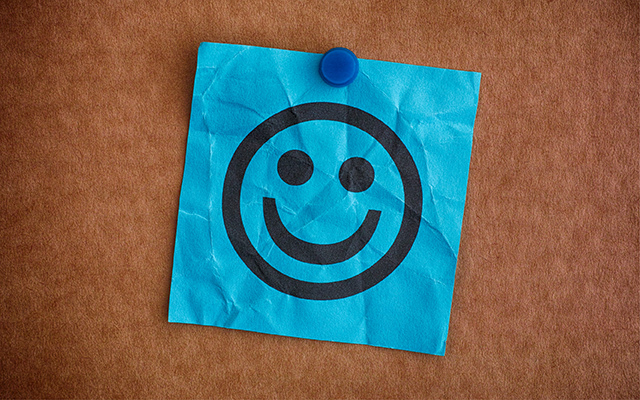|
Listen to this article:
|
Early on a Monday morning, Johanna Meyer — an actor, dancer, and teacher in New York City — was exiting her usual train in the Bronx. Ahead of her was a steep hill: about six blocks up, then six blocks down. Unlike most Monday mornings, however, she didn’t feel dread when she faced the long trek required to get to her early class.
“Instead of my usual exhaustion, I was so full of energy,” she said about her walk that day. Meyer was confused at first, but then she remembered how she’d spent her Sunday.
As part of her acting program, Meyer had participated in a three-hour clown workshop involving improv sketches. “It was really hilarious,” she recalls. “I hadn’t laughed that hard in a long time — and it was as if that laughter had just cleared something inside of me.”
The Health Benefits of Laughter
A reservoir of energy isn’t the only reward regular laughter can offer. It also mitigates the effects of stress, reduces inflammation, and boosts immune-system function. The American Lung Association even extolls its benefits for your cardiovascular, pulmonary, and respiratory systems. That’s because laughing tightens your diaphragm, chest, and abdominal muscles, encouraging your lungs to force stale air out and allow fresh air in.
The emotional rewards are equally impressive. Shared laughter can diffuse tension in social settings and help build social bonds and a sense of community. On an individual level, it can stave off depression, provide comfort, and smooth the sharp edges of loneliness.
It’s particularly helpful during difficult times, says comedian and psychologist Brian King, PhD, author of The Laughing Cure. “It’s a mechanism to help us reduce the impact of stress in our lives.”
But it’s not necessarily about laughing in the midst of stress. After all, King adds, “if there’s a situation that I absolutely have to take charge of — say I’m being attacked by a group of wild bears — then in that situation, I’d need to get stressed to help me to survive.”
However, laughter can prepare you for those challenging situations by helping you cultivate resilience. “If we’re pretty good at laughing stuff off,” he explains, “then if something comes along that would cause us some stress, we’re probably not going to be as damaged by it.”
Bring more laughter into your life with these methods.
5 Tips to Find More Laughter
1) Seek Out Laughter
Whether you enjoy live standup shows at a comedy club or prefer watching funny videos online, amusing entertainment can guarantee giggles. And it’s not just a way to pass the time: Laughing boosts mental health by helping you reframe negative experiences, says King, who points out that a lot of comedy is based on painful history. “Many comedians bring their pain to the stage,” he notes, whether it’s joking their way through a breakup or unpacking their childhood trauma with a humorous slant.
“By making it funny, they are in fact changing the way they feel about that particular subject,” he explains. And that reframing helps the audience, too, by creating laughter about the situation — and perhaps a point of connection as well, if they see themselves reflected in it.
And there’s plenty of “clean comedy” for people who don’t like to hear cursing or risqué stories. One popular destination is Dry Bar Comedy in Provo, Utah, which offers live comedy shows and a fully stocked YouTube channel.
2) Do Laughter Yoga
Intentional giggles and gentle movement are both incorporated into laughter yoga. “The idea of being present and nonjudgmental is crucial,” explains Sarah Routman, a certified laughter yoga teacher.
Routman leads groups through exercises that are designed to generate chuckles “without relying on what’s going on outside you. It’s about using your imagination and play and laughing on purpose.”
Gathering with others for laughter yoga is particularly helpful for people living alone, Routman adds: We’re 30 percent more likely to giggle if we’re doing it with someone else.
One exercise she recommends is called “laughter breaths.” Inhale deeply, and then as you exhale, repeat “ha ha ha ha ha ha” as fast as you can. At some point you’ll feel it: “You’ll let go of the exercise,” she says, “and it’ll just become laughter.” (It may seem silly but it really works!)
Routman also leads a weekly “laughter call” on Monday mornings. Strangers and friends from more than 34 states have joined in the nine years since she started the ritual. For many callers, it’s become a community — a regular space for people to be silly and playful, with the simple goal of having fun together.
3) Smile
No one likes to be told to smile more, but there may be something to this seemingly annoying advice: Namely, a smile is a precursor to laughter.
“You don’t see many people laughing before smiling,” Routman says. What happens in your body when you smile, she explains, is that you’re sending endorphins to your brain. “And then the door is open to dopamine, serotonin, and oxytocin. You start to feel better just by smiling.”
In one study, participants held a pen in their mouth one of two ways: either with their lips holding it so that the pen stuck straight out like a cigarette, which created an expression similar to a frown, or sideways in their teeth, which made their mouth look like a smile. The people who were “smiling” without realizing it “not only felt happier as a result, but also found cartoons more amusing.”
4) Make Time for Play
As people get older and their lives become more complicated, they often think they need to take things more seriously, says King. “I’m a grownup now; I don’t have time to play. But research is showing that basic, fundamental behaviors that we all engage in and enjoy frequently when we’re younger turn out — surprise, surprise — to have a lot of health benefits.”
So, join a kickball team; play fetch with your dog; build Lego sets with your kids; take up roller skating. However you play, as long as you’re laughing, you’re reaping the benefits.
And if you start to feel guilty or irresponsible — like you’re not being adult enough — remember: You’re giving your lungs the gift of fresh air, perhaps meeting new people, and spreading good humor at the same time. (For more on the health benefits of play, see “The Power of Play.”)
5) Give Yourself Permission to Try
To truly laugh, you first need to open yourself up to humor, silliness, and levity. People often judge themselves harshly, Routman says, which can get in the way of laughter. That’s why some of the laughter exercises and games in her sessions are specifically designed to help jettison negative self-talk. (For more on how to quiet your inner critic, see “6 Strategies to Improve Your Self-Talk.”)
Like yoga, laughter is a practice, Routman adds — so the more you allow yourself to try laughing on purpose, the easier it might become to find the funny, surprising, or absurd in your everyday life.
Balance
Explore more empowering strategies to support your efforts to live in (closer) alignment with your values at our Balance department.
This article originally appeared as “Have a Laugh” in the January/February 2024 issue of Experience Life.





This Post Has One Comment
I really enjoyed this article. I’m going to see if I can find a laughing yoga class to go to.